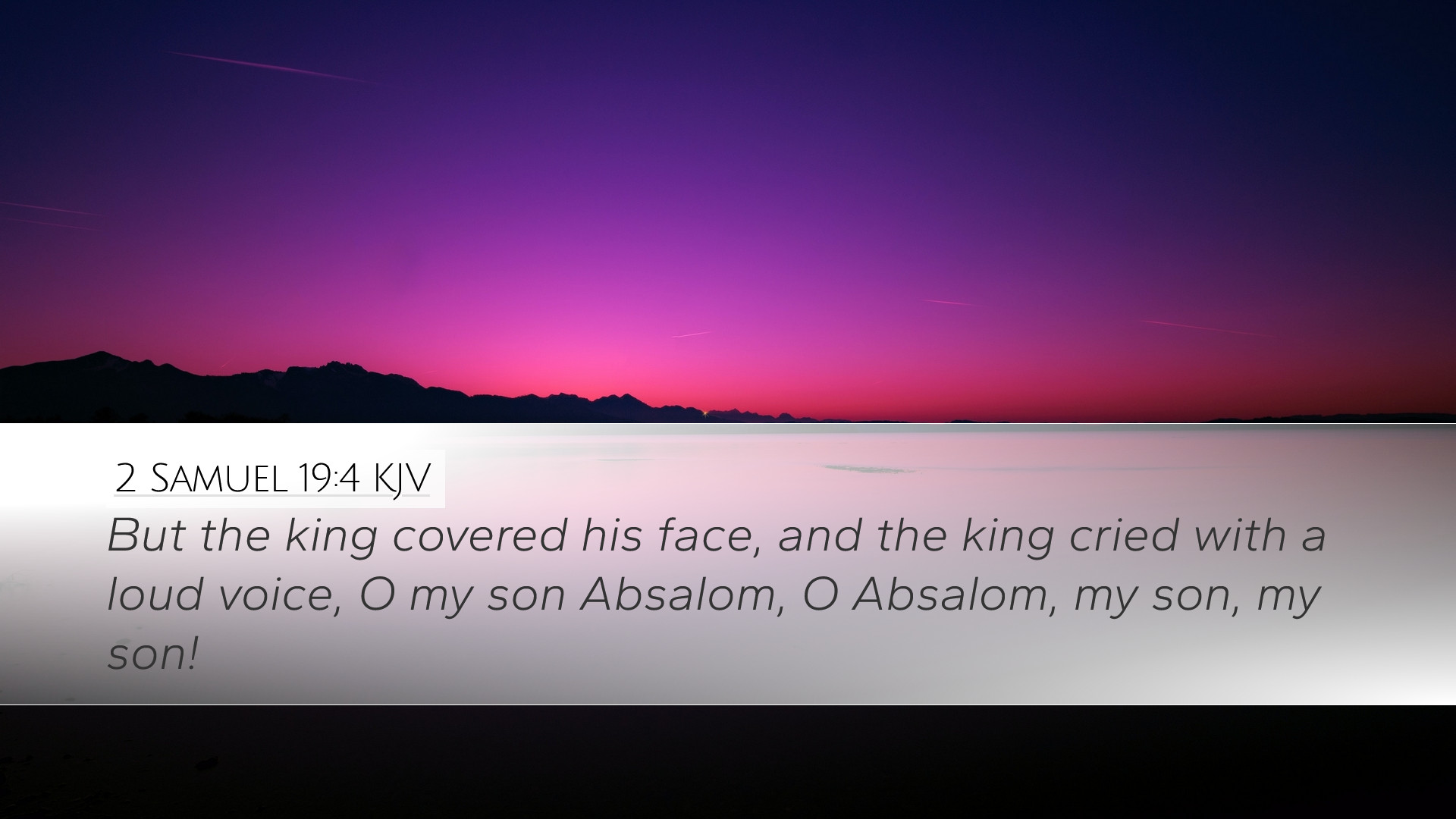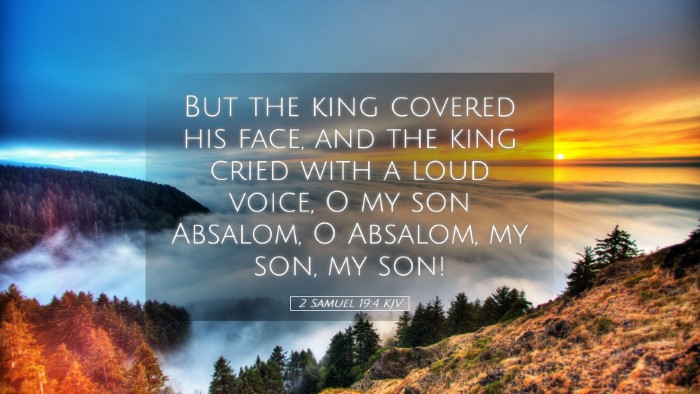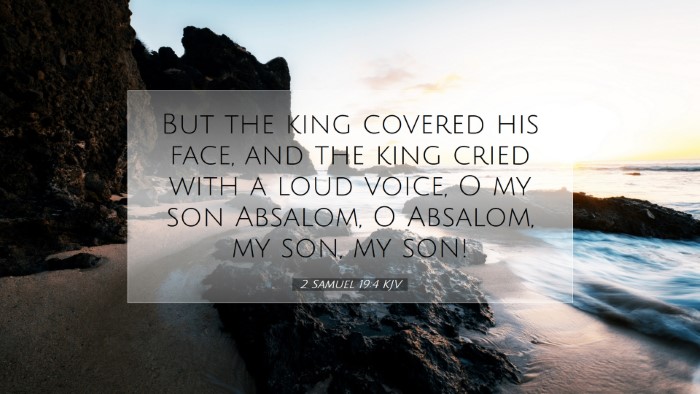2 Samuel 19:4 (KJV): "But the king covered his face, and the king cried with a loud voice, O my son Absalom, O Absalom, my son, my son!"
Introduction
This poignant verse captures King David's profound grief over the death of his son Absalom. The utterance, repeated three times, not only emphasizes the depth of David's sorrow but also reflects the complexities of parental love and the tragic consequences of rebellion. In this commentary, we will explore insights from prominent public domain commentators including Matthew Henry, Albert Barnes, and Adam Clarke, offering a comprehensive examination of this heart-wrenching moment in Scripture.
Contextual Background
To fully understand 2 Samuel 19:4, it is essential to place it within the context of David’s life and reign. Absalom, David’s son, led a rebellion against his father, seeking to usurp the throne. This family conflict culminated in Absalom's death in battle, which not only marked a significant political outcome but also a personal tragedy for David.
Historical Context
David was a king who experienced both divine favor and deep personal turmoil. His relationship with Absalom was marred by conflict, and the rebellion was a culmination of years of family strife, including issues of power, favoritism, and heartbreak over sin. This context is pivotal in understanding David’s emotional response.
The Depth of Grief
David's actions in this verse display the raw pain of a father who has lost a son. His covering of the face is symbolically significant, indicating shame and mourning. The repetition of his son's name highlights a desperate longing and a wish for a reality that cannot be changed.
Matthew Henry's Observation
According to Matthew Henry, such expressions of grief are vital for understanding the human experience of love and loss. He notes that David's heart was deeply entwined with Absalom, despite the latter's rebellion. Henry emphasizes that mourning is a natural response to loss and reflects on how the love of a parent persists even amid the most painful circumstances.
Albert Barnes' Insight
Albert Barnes elaborates on the idea that David's lament showcases the unbreakable bond of fatherhood. He suggests that David’s grief was compounded by feelings of regret and guilt concerning his own failures as a father. Barnes posits that this lamentation serves as a powerful reminder of the fragility of human relationships and the devastating impact of sin.
Adam Clarke's Commentary
Adam Clarke underscores the emotional state of David, pointing out that the king’s lament is an example of overwhelming sorrow that seems to transcend the immediate event. Clarke interprets David’s cries as containing both a love for Absalom and an acknowledgment of the loss of potential reconciliation – a moment of what might have been.
Theological Implications
This verse invites deeper theological reflection on themes such as loss, redemption, and the nature of divine love. David’s grief mirrors the lament of God for His wayward people. Just as David mourned for Absalom, God's heart aches for those who stray from the path of righteousness.
Repentance and Reconciliation
The narrative urges readers to contemplate the importance of repentance. The estrangement between David and Absalom serves as a cautionary tale about the dangers of pride and rebellion. Both Henry and Clarke allude to the importance of reconciliation, illustrating that unchecked sin leads to separation – not only between individuals but also between humanity and God.
Lessons for Today
The reflections from 2 Samuel 19:4 provide timeless lessons relevant for contemporary readers, especially pastors, students, and theologians:
- The Nature of Grief: Embrace grief as a part of life, understanding that it is a natural response to loss and a reflection of love.
- The Importance of Relationships: Maintain and nurture relationships, actively seeking reconciliation where there has been estrangement.
- Reflection on Leadership: Leaders, like David, need to reflect on their influence and responsibility towards others, recognizing that personal actions have far-reaching consequences.
- The Heart of God: Consider God’s longing for His people and His willingness to forgive, paralleling David’s heartache for Absalom.
Conclusion
In 2 Samuel 19:4, we find a powerful depiction of a father's love juxtaposed with the cost of rebellion and sin. By synthesizing insights from Matthew Henry, Albert Barnes, and Adam Clarke, we gain a deeper understanding of the complexities of human emotions and God's overarching grace. This passage serves as both a lament and a call to recognize the weight of our choices and the hope for reconciliation through genuine repentance.


